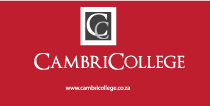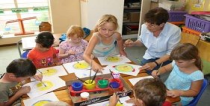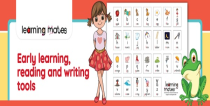Articles
Parents often ask whether they must submit formal assessments and reports, or whether it is enough simply to keep a portfolio of work showing that education is taking place.
1. What the 1999 Home Education Policy required
Under the 1999 policy (still used by many officials), parents were expected to keep:
- A portfolio of work
- Evidence of continuous assessment
- Evidence of formal assessments/examinations at the end of each year and at the end of Grades 3, 6, and 9
These requirements focused on the parent maintaining records; they did not require parents to submit assessments to the department.
2. What the BELA Act now requires (Section 51(2)(b))
The BELA Act introduces new obligations for registered home learners. Parents must undertake to:
(iii) Arrange for the learner’s educational attainment to be assessed by a competent assessor:
(aa) at the end of each phase (Foundation, Intermediate, Senior), until the learner turns 15 or completes Grade 9, whichever comes first; and
(bb) against a standard not inferior to the National Curriculum Statement (NCS).
(iv) Submit to the Head of Department the learner’s assessment report, signed by the competent assessor, at the end of each phase, as evidence of educational attainment.
This means that, under BELA, some form of external assessment and submission is compulsory for registered learners.
Parents that want to follow this route can click here to order such assessments online.
3. What about families whose curriculum cannot be compared to CAPS?
Many parents use curricula that do not align with the NCS/CAPS in content or method. They may find it unreasonable to be assessed according to CAPS-based criteria.
Such parents may choose to submit:
- Curriculum-independent assessments performed by a professional assessor (e.g., standardised tests, developmental assessments, classical education assessments). Parents that want to follow this route can click here for such assessments.
- A portfolio of work showing the learner’s progress and mastery.
When submitting these, parents should provide a written explanation:
- why this form of assessment is in the best interests of the child, and
- why the standard of the assessment is not inferior to the NCS (remember: “standard” does not mean “same content”).
This aligns with the legal wording of the BELA Act, which requires equivalence in standard, not identical content and skills. Parents that need assistance on this can click here to order a Supplementary Consultation with SAHomeschoolers.
4. Will officials accept alternative assessments?
This depends on how the provincial department interprets the law:
If officials accept it: It creates a precedent for accepting curriculum-independent assessments.
If officials refuse or cancel the registration: Parents then have the right to:
- appeal the decision to the MEC (under S51), and
- argue that their assessment complies with the legal requirement of a non-inferior standard, even if the content is different.
This may become an important case for clarifying how the law should apply to non-CAPS curricula. Parents that need assistance on this can click here to order a Supplementary Consultation with SAHomeschoolers.
Summary
- Under the 1999 policy, keeping a portfolio was enough; no submissions were required.
- Under BELA, external assessment at each phase and submission of the signed report is compulsory for registered learners.
- Families using non-CAPS curricula may submit alternative assessments plus a portfolio, with a written motivation.
- Acceptance is not guaranteed; refusal creates a legal opportunity to appeal.
Events
Has no connect to show!
Legal & Research
Homeschooling and the law
Home schooling was recognized in 1996 in Section 51 of the SA Schools
+ ViewCentres
Homeschool ABC
Support
Curriculums
Frequently Asked Questions
-
Do I need to be a qualified teacher?
No. Research has found no correlation between the qualification of the parent and the academic performance of the child. Research shows that...
-
Can I be a working mom and homeschool?
Single parents who are committed to homeschool organize a schedule around their work commitments and sometimes involve family or tutors to assist...
-
Do home learners sometimes wish they were in school and were normal?
They generally like being homeschooled. Some homelearners go to school for the experience but many return to homeschooling as within the homeschool...
-
Is homeschooling legal in South Africa?
Yes. Since 1994, the right for parents to home educate their children was legalised in South Africa through the adoption of the new constitution. In...
































